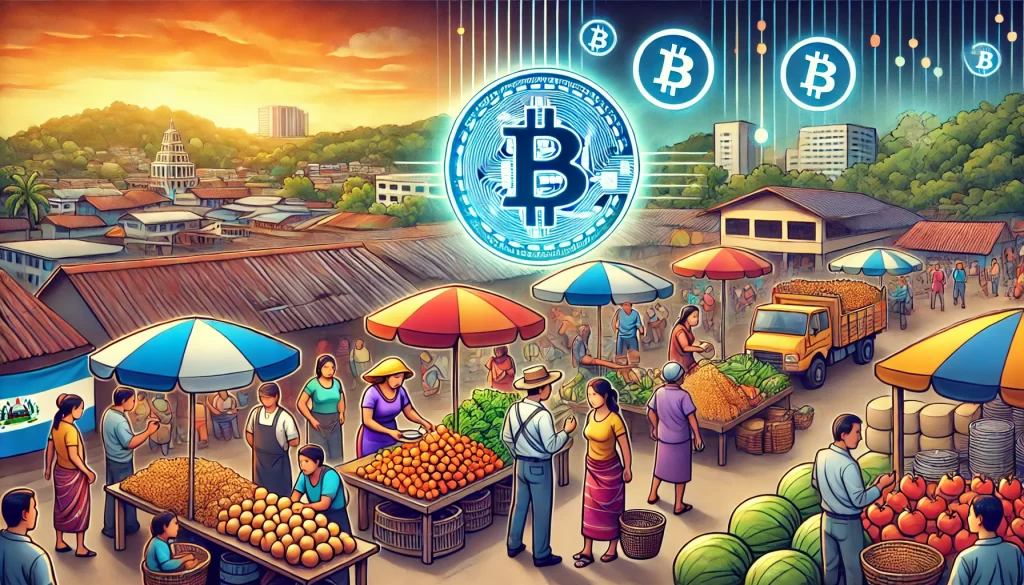If you’ve been paying attention to the world of finance lately, you know Bitcoin isn’t just some fringe digital currency anymore – it’s making waves, and not just in the usual places. We’re talking about developing countries, like El Salvador, where Bitcoin adoption is changing the economic game in ways that most people never saw coming. But is this move really a game-changer, or is it just a risky bet that could blow up in their faces? Let’s break it down.
The Bold Move: El Salvador’s Bitcoin Gamble
First off, you’ve got to give El Salvador some credit – they’re the first country in the world to make Bitcoin legal tender. That’s right, in September 2021, El Salvador went all-in on Bitcoin, mandating that businesses accept it as payment alongside the U.S. dollar. President Nayib Bukele is betting big on this move, arguing that it’s going to drive investment, boost the economy, and give the unbanked population access to financial services.
But let’s be real – this is a high-stakes gamble. We’re talking about a country with a lot of economic challenges, and diving headfirst into the volatile world of cryptocurrency isn’t exactly a safe bet. So, how is this playing out on the ground?
Impact on Financial Inclusion
Here’s where things get interesting. In a country where a significant portion of the population doesn’t have access to traditional banking, Bitcoin is opening doors. We’re talking about people who have never had a bank account suddenly being able to store and transfer money using just a smartphone. The government even rolled out the Chivo Wallet, an official digital wallet for Bitcoin transactions, and gave every citizen $30 worth of Bitcoin to get started.
For the unbanked, this is a big deal. They can now participate in the economy in ways they never could before. Remittances – which are huge in El Salvador, making up about 24% of the country’s GDP – are also seeing a shakeup. Traditionally, sending money back home from abroad involved hefty fees and long wait times. But with Bitcoin, those fees drop significantly, and transactions happen almost instantly.
Boosting Investment and Entrepreneurship
Now, you’ve got to think about the potential for investment. El Salvador is positioning itself as a hub for Bitcoin-related innovation. The idea is that by embracing Bitcoin, the country can attract tech companies, entrepreneurs, and investors looking to capitalize on the cryptocurrency boom. We’re talking about everything from Bitcoin mining operations to startups developing blockchain-based solutions.
This could be a game-changer for El Salvador’s economy. By creating a more business-friendly environment, the country could see a surge in job creation, technology transfer, and overall economic growth. But let’s not get too ahead of ourselves – there’s still a lot of uncertainty, and not everyone is convinced this is the golden ticket to prosperity.
The Risk Factor: Volatility and Public Skepticism
Here’s the part where the dream meets reality. Bitcoin is notoriously volatile – one minute it’s skyrocketing, and the next, it’s plummeting. For a developing country like El Salvador, this kind of instability can be dangerous. Imagine getting paid in Bitcoin and then watching your paycheck lose half its value overnight. That’s not exactly a recipe for economic stability.
Plus, let’s talk about public skepticism. Not everyone in El Salvador is on board with this Bitcoin experiment. There have been protests, with people concerned about the lack of transparency and the potential for financial instability. And while the government is pushing hard to get everyone on the Bitcoin bandwagon, adoption has been slower than they hoped. A lot of people are sticking with the U.S. dollar, which they know and trust.
Impact on the Broader Economy
So, what’s the overall impact on El Salvador’s economy? It’s a mixed bag. On one hand, Bitcoin adoption is driving innovation, increasing financial inclusion, and cutting remittance costs. On the other hand, the volatility and uncertainty are real concerns. The country’s international relations are also getting complicated – institutions like the International Monetary Fund (IMF) aren’t exactly thrilled with the Bitcoin experiment, which could affect El Salvador’s access to international aid and loans.
But here’s the thing – by embracing Bitcoin, El Salvador is sending a message to the world that they’re willing to take bold, unconventional steps to improve their economy. If it works, they could set a precedent for other developing countries looking for alternative paths to economic development. If it fails, well, it could be a costly lesson.
Conclusion: A High-Stakes Experiment with Potential Payoffs
So, what’s the bottom line here? El Salvador’s adoption of Bitcoin is a high-stakes experiment that could either pay off in a big way or backfire spectacularly. The potential benefits are huge – increased financial inclusion, lower remittance costs, a boost in investment, and positioning the country as a tech innovation hub. But the risks are just as real – volatility, public skepticism, and the potential for economic instability.
In the end, whether this gamble pays off will depend on a lot of factors – how well the government manages the transition, how quickly the population adopts the new system, and whether Bitcoin can maintain or grow its value over time. One thing’s for sure – the world is watching, and El Salvador’s bold move could be the start of something big, or a cautionary tale for others.
So, if you’re keeping an eye on Bitcoin and wondering how it’s going to impact developing economies, El Salvador is the place to watch. This is where the rubber meets the road, and the results could reshape the future of finance in ways we can’t even fully predict yet.





